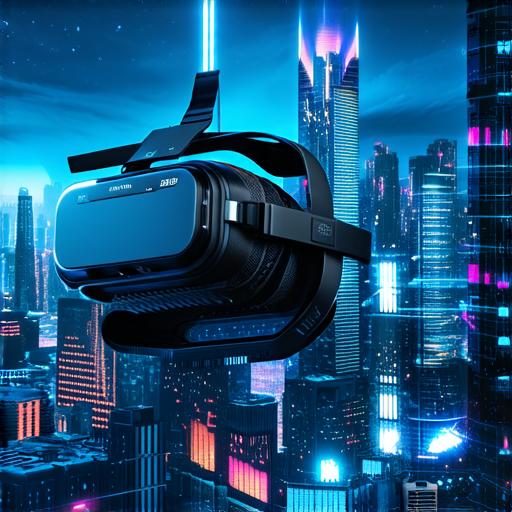
In recent years, virtual reality (VR) technology has been gaining popularity and traction in various industries, including gaming, education, healthcare, and more. The immersive experience that VR provides is making it an increasingly attractive option for businesses looking to improve customer engagement and enhance user experiences.
One of the most significant advantages of VR is its ability to create a highly engaging and immersive experience for users. By surrounding them in a virtual world, businesses can provide customers with an unforgettable experience that they simply cannot replicate in real life. For example, a car manufacturer might use VR technology to give potential buyers a chance to test drive their latest models in a fully immersive environment.
Virtual reality also has a lot to offer in the realm of education. By using VR technology, students can take virtual field trips to places they might not otherwise be able to visit, such as ancient ruins or the depths of the ocean. This provides a unique learning experience that can help students engage more deeply with the material and improve their understanding of complex concepts.
In healthcare, VR technology has been used for a variety of purposes, including pain management, rehabilitation, and even surgery. By using VR, doctors and therapists can create customized experiences that are tailored to each patient’s individual needs and circumstances. This can lead to faster recovery times and improved overall outcomes for patients.
Despite these many benefits, there are still some concerns about the long-term viability of VR technology. One of the biggest challenges is the high cost of equipment and software required to create and experience virtual reality. While prices have come down in recent years, they are still significantly higher than more traditional forms of technology.
Another challenge facing VR is the lack of standardization in the industry. There are many different types of VR equipment and software available, which can make it difficult for businesses to choose the right solution for their needs. Additionally, there is no clear consensus about what the future of VR technology should look like, which can make it difficult for investors and other stakeholders to make informed decisions.
Despite these challenges, many experts believe that virtual reality will continue to play an important role in the future of technology. As the cost of equipment and software continues to decrease, more businesses are likely to adopt VR technology as a way to improve customer engagement and enhance user experiences. Additionally, continued research and development in the field are likely to lead to new and innovative uses for VR technology that we can’t even imagine yet.
One example of this is the use of VR in the real estate industry. By using VR technology, real estate agents can give potential buyers a virtual tour of properties they are interested in, allowing them to get a better sense of the space and its features before making an offer. This can lead to more efficient and effective sales processes, as well as increased customer satisfaction.
Another area where VR technology is likely to have a significant impact is in the field of entertainment. With the rise of streaming services and the decline of traditional cable TV, there is an increasing demand for new and innovative ways to engage audiences. Virtual reality can provide a unique and immersive experience that can help films, games, and other forms of entertainment stand out from the competition.
In conclusion, while virtual reality technology still has its challenges, it is clear that it will continue to play an important role in the future of technology. With continued innovation and investment, VR technology has the potential to revolutionize everything from gaming to healthcare to education, providing users with unforgettable experiences that they simply cannot replicate in real life.
FAQs:
Q: What are some benefits of virtual reality technology?
A: Virtual reality technology offers a highly engaging and immersive experience for users, which can lead to increased customer engagement, enhanced user experiences, and improved learning outcomes.
Q: What challenges does virtual reality technology face?
A: The high cost of equipment and software required to create and experience virtual reality, as well as the lack of standardization in the industry, are some of the biggest challenges facing VR technology.
Q: How will virtual reality technology impact the future of technology?
A: Virtual reality technology is likely to have a significant impact on the future of technology, with continued innovation and investment leading to new and innovative uses for VR technology in everything from gaming to healthcare to education.
